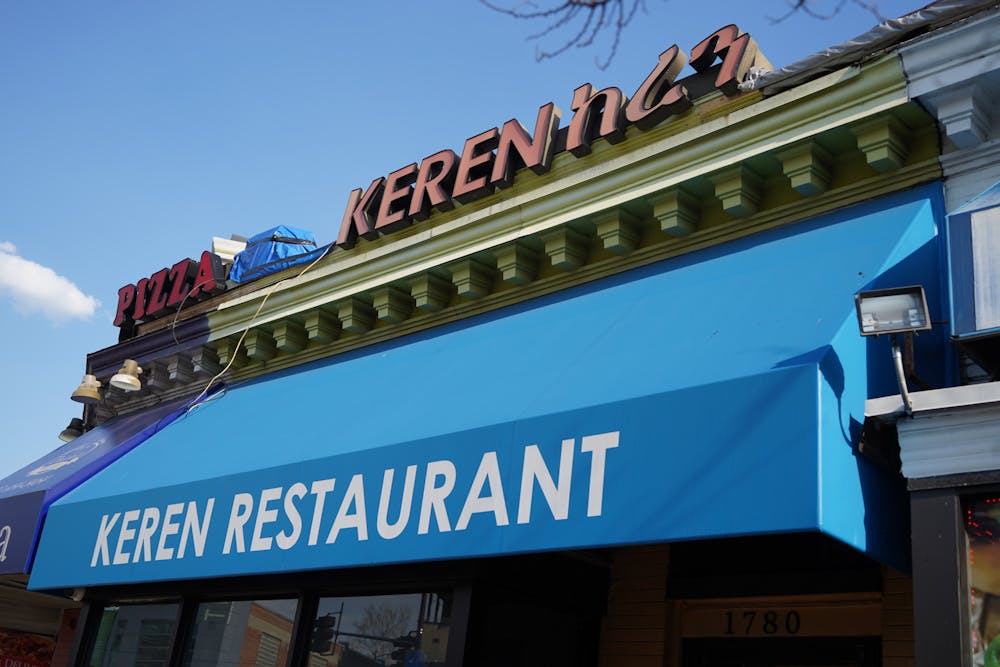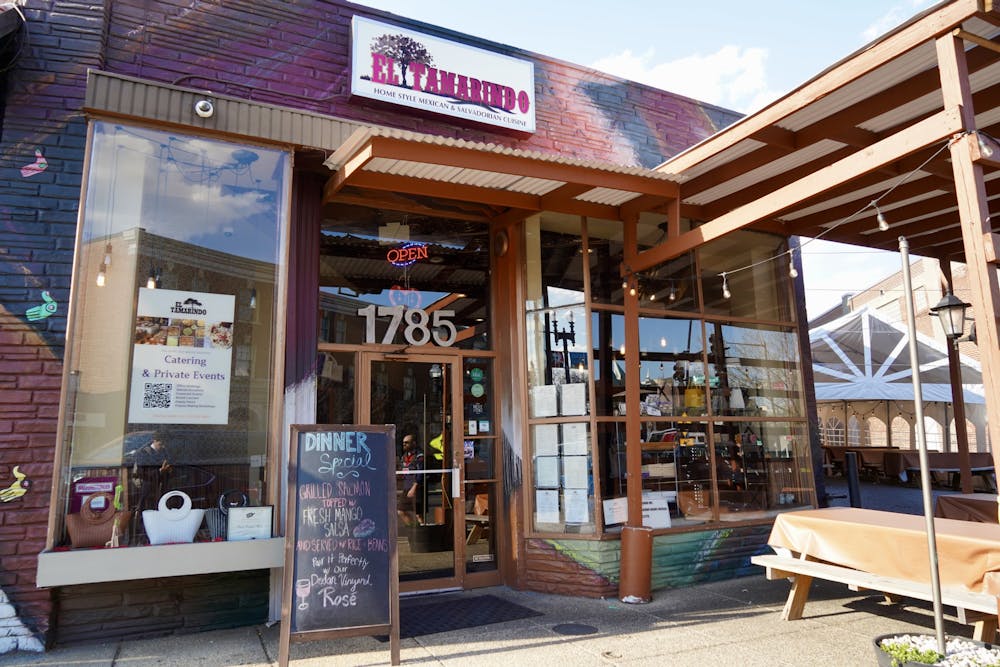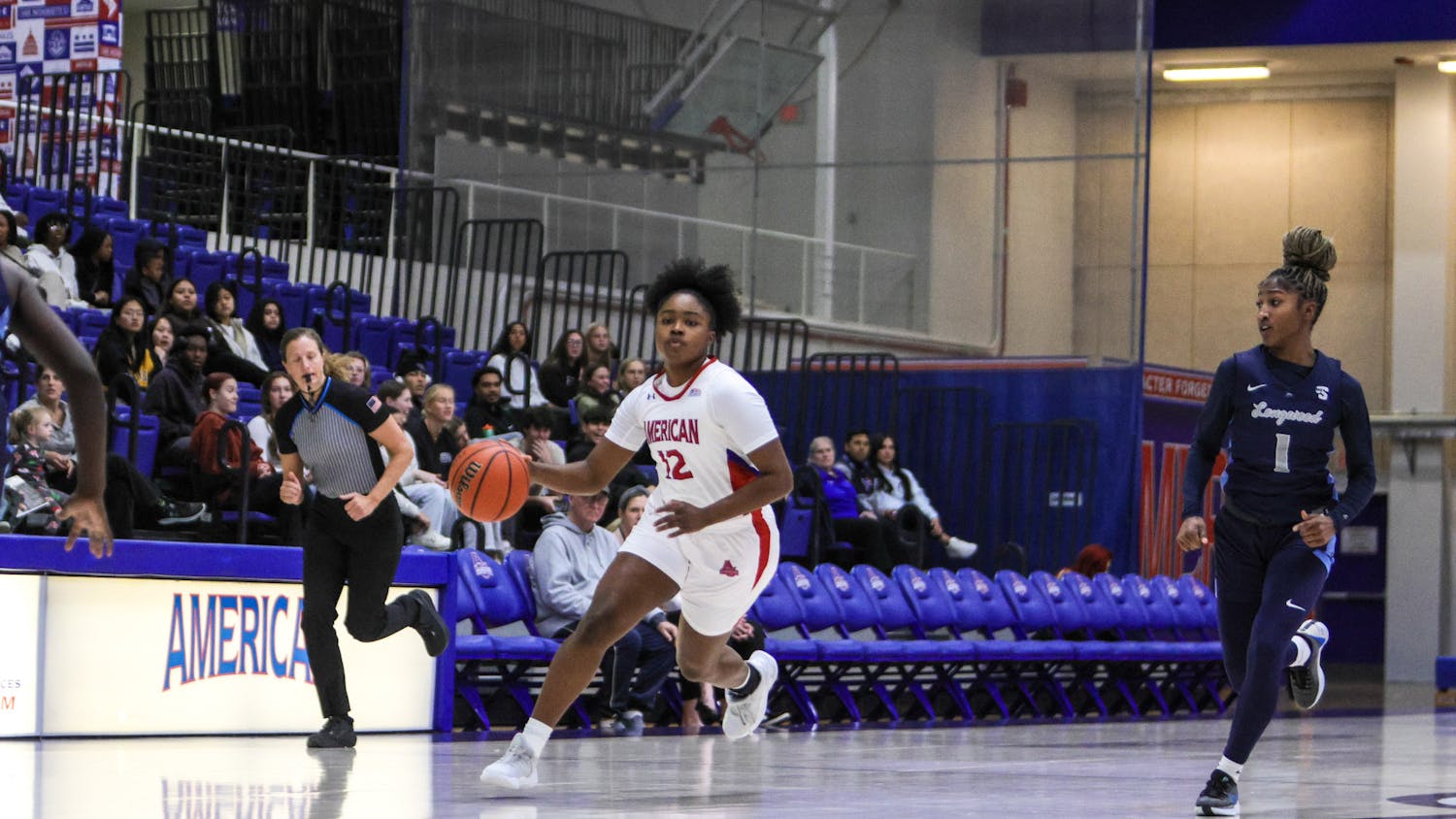From the Newsstands: This story appeared in The Eagle's April 2024 print edition. You can find the digital version here.
Perched on the busy corner of Florida Avenue and 18th Street, El Tamarindo, the longest-standing Salvadoran and Mexican restaurant in the District, helped transform D.C.’s food scene.
When José and Betty Reyes first opened their doors in 1982, it wasn’t uncommon to see Latino restaurants offering Sal-Mex cuisine. Their daughter and the restaurant’s current manager, Ana Reyes, said when Salvadorans first immigrated to D.C., using Sal-Mex branding helped introduce residents to Salvadoran pupusas, soups and snacks through Mexican cuisine.
Home to 175 embassies, D.C. is bound to be food-forward. Most people in the District are used to eating food from five different countries in a week, Ana said. More likely than not, that food is where people find their community.
“It’s so normal for us that it’s almost like we are world citizens through our exposure to food,” Ana said. “It’s an opportunity that we have just by living in D.C.”
The District is a hotspot for international cuisine. In 2023, Datassential, a food and beverage company, ranked D.C. number four out of the top 10 U.S. cities for “food forwardness,” and WalletHub declared D.C. the 17th best foodie city in America.
Ana credits El Tamarindo’s success to the local Latino community. Back in the day, she said, there were no sanctioned organizations and coalitions to help keep the restaurant running; it was a community effort.
“It was really family, friends, neighbors coming together and making sure that the business developed and thrived,” she said. “That’s that immigrant spirit.”
In thanks, Ana includes community outreach as a part of her role as manager. Every year, El Tamarindo collaborates with local chefs, DJs and performers to celebrate National Pupusa Day on the second Sunday of November.
For National Pupusa Day 2023, El Tamarindo served unique twists on the traditional corn pupusas, including an Eritrean-Salvadoran blend. The doro wat pupusa, prepared by Chef Elias Taddesse, is made from spicy Ethiopian chicken and paired with signature berbere sauce and pickled turmeric slaw.
The proceeds were donated to La Clínica Del Pueblo, a comprehensive medical center advocating for inclusion and health equity for Latino immigrants.
“In most places, the immigrant community is kind of like the heartbeat of the restaurant that doesn’t really get credit for anything,” Ana said. “It’s the chefs or the restaurant groups that will get the credit, but you look into most kitchens in the city and it’s the immigrant community that’s doing all the work.”

Lemlem Gebre, co-owner of Keren Restaurant located just across the street from El Tamarindo, said that family helped keep her restaurant alive. Serving Eritrean food since 1987, the family-owned cafe is among the last Ethiopian businesses in the neighborhood.
When the first wave of Ethiopians immigrated to D.C. in the 1970s and ’80s, they made their homes in Adams Morgan and Columbia Heights. Later, many businesses and homeowners moved farther down the U Street corridor as they were priced out of Adams Morgan.
Today, a majority of the Ethiopian community resides outside of the District, finding more affordable living in Silver Spring, Maryland and Falls Church, Virginia — making the greater Washington region home to the largest concentration of Ethiopians outside of Africa.
Gebre, known to her family, friends and customers as Lele, relies on word of mouth to draw customers while keeping the cafe as low cost as possible.
“I know we’re not making enough money, but I love what I’m doing; I love when people come and leave happy,” Gebre said. “Especially the students, when they come and can eat good food, affordable food, it makes me happy.”
Family and returning customers keep Keren Restaurant afloat, but city development is raising the cost of living.
The cost of living — expenses that include housing, food and healthcare among other factors — in D.C. is 51.9 percent higher than the national average according to ApartmentList, an online marketplace for apartment listings.
A separate survey conducted between Aug. 14 and Sept. 5, 2022 by the National Restaurant Association, found that of 944 respondents, 52 percent said they eat at home more often because of increased prices and 43 percent eat out less often.
A survey from the Restaurant Association of Metropolitan Washington said post-pandemic recovery has placed pressure on local restaurants, reporting the closure of 50 locally owned restaurants in 2023.
Unlike El Tamarindo and Keren Restaurant, Balangay, a Filipino restaurant, has faced location insecurity since opening. Owner and chef, Erwin C. Villarias, who goes by Wing, immigrated to D.C. intending to serve authentic Filipino food.
“Filipino food is completely different than [what people] expected,” Wing said. “My main goal is to make Filipino food that looks different, is presented differently, but to maintain the authenticity of the flavors.”
Wing first opened Balangay as a pop-up in 2021 in Bullfrog Bagels and Sospeso. After opening a restaurant location in Petworth, he was unable to continue renting all three locations and transitioned to a pop-up near Union Station. Without location stability and steady interactions with neighborhood restaurants, Wing has made forming community a learning pursuit.
While transitioning locations, Wing taste tests other Filipino restaurants and samples from other cultures. He said he’s grateful for D.C.’s large international community because it challenges him to innovate and cultivate close ties with other restaurants as he finds greater footing in the city.
“I think having a lot of restaurants is good because you can see the diversity of the place,” Wing said. “It’s more culturally rich. The more diverse the places, the more we can learn from.”
This article was edited by Eliza DuBose, Zoe Bell, Sara Winick and Abigail Pritchard. Copy editing done by Luna Jinks, Isabelle Kravis, Ariana Kavoossi, Sarah Clayton and Romy Hermans.





